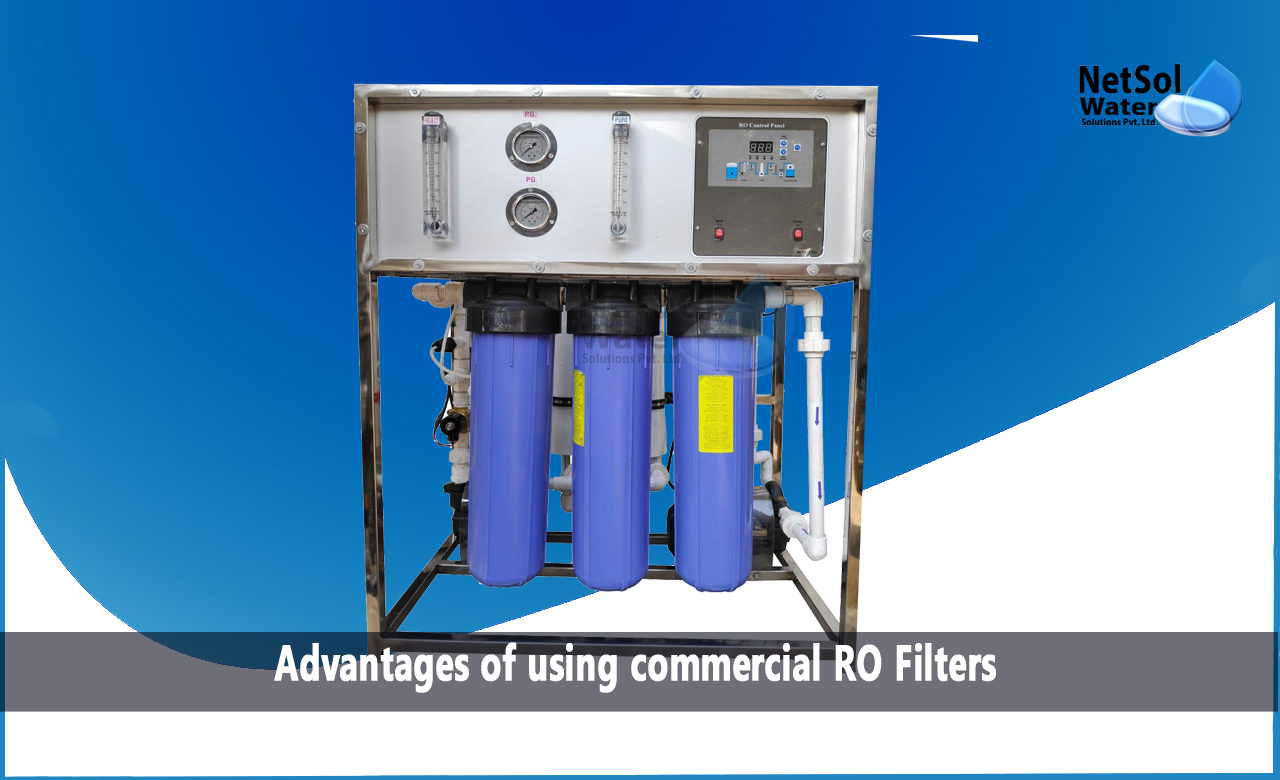What are the advantages of using commercial RO Filters?
Commercial RO purifiers have two multistage filters, each of which is designed to filter out a particular harmful substance, such as arsenic, copper, chlorine, or sodium. Because of this, the water is suitable for a variety of uses and safe for drinking.
Commercial RO systems use housing membranes, a high-pressure pump, and a motor. The pressure required to reverse the natural osmosis process is provided by the pump and motor. The semipermeable components of the RO's membrane remove the water's pollutants from the water when pressurized water is forced through them. In the latter steps, a UV filter is used to eliminate any final bacteria, leaving only pure, fresh drinking water.
In this blog, we will discuss the advantages of Commercial RO plants. The benefits of commercial RO plants can be studied by grouping them into the following number of sub-headings.
Environmental Benefits:
· One of the core environmental advantages of using a Reverse osmosis system is less harmful wastewater. This is because the production of the permeate (clean water) doesn't require the use of any hazardous chemicals.
· The capture and proper disposal of pollutants inside the mains water source are another beneficial effect of RO. This is without the release of water that has been contaminated chemically and is going to the effluent or drain.
· Without the use of chemicals, resins, or ion exchange beds, the cutting edge design of the membranes filters out the pollutants from the water feed. In comparison to a membrane system, the removal and disposal of the resins and ion exchange beds has a significant environmental impact at the end of the life of chemical-based systems. An RO system's concentrated pollutants can then be released directly to the drain without the requirement for an additional, expensive effluent treatment step.
Cost Benefits:
· While the cost of employing reverse osmosis and membrane components is declining, the price of acid and caustic solutions is still rising. Electricity is the main expense for reverse osmosis systems. Modern water filtration systems use little energy, which results in reduced operational costs.
· It is possible to integrate a RO system into the process and feed the water either directly into the production line or to a holding tank for storage before use. Wastewater streams can pass through a RO system, which helps to lower disposal costs by reusing the water again in the process.
Health and Safety Benefits:
· The fact that no dangerous chemicals are used in a reverse osmosis system to create high-quality water is one of the key advantages for health and safety. Acids and alkalis, which are extremely hazardous, are used in conventional resin-based ion exchange systems.
· Reverse osmosis uses more compact and effective machinery to replace traditional procedures like chemical treatment. This creates a safer working environment for the staff by removing the competing dangers of manual handling and having dangerous chemicals on site.
Maintenance Benefits:
· Because it is a self-contained device, the RO system is very low maintenance.
· It is self-cleaning and operator involvement is low. Instead of being actively maintained, it just needs daily supervision from the staff that are already there.
· With little downtime required, productivity is maintained.
· Pre-filter replacement is quick and easy, and it is ergonomically sound.
· Depending on a number of variables, including the type and quantity of feed water, the membranes can last two to three years.
· In contrast to a resin-based system, which would take days, 100% of the membranes in a particular system could be replaced in a matter of hours.
Do you need an advice or assistance on selecting the best water and waste water treatment unit? We have solutions for all your problems!
Let us now your problem, our experts will make sure that it goes away.
For an assistance or related query,
Call on +91-965-060-8473
Or write us at enquiry@netsolwater.com



